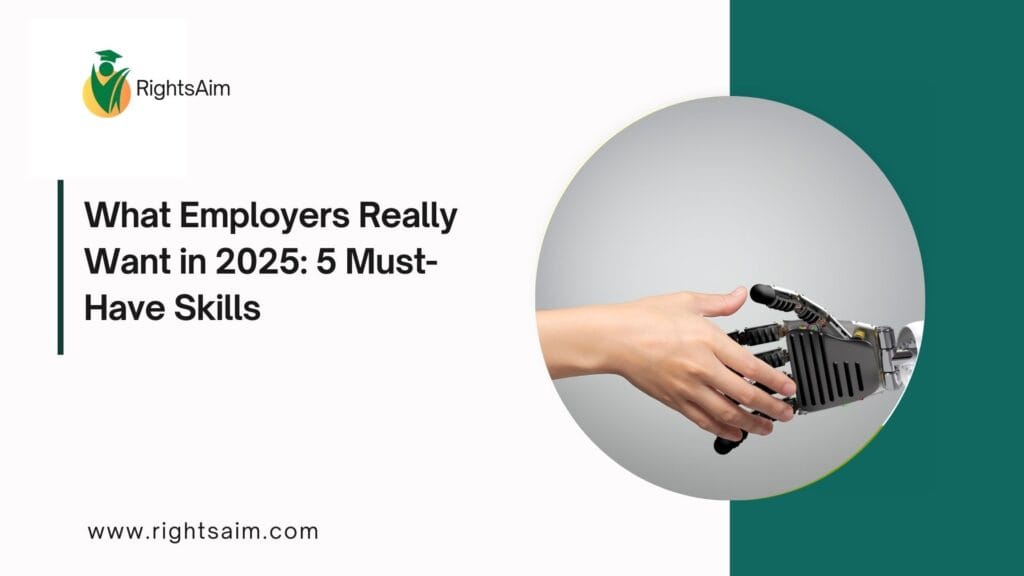
1. Digital Fluency and Tech Adaptability
Almost every industry — from banking to healthcare to retail — now relies on digital tools. Employers no longer see technology as a separate department; it is the backbone of every role. In 2025, being digitally fluent does not mean just knowing how to use MS Office or email. It includes:
AI literacy: Understanding how artificial intelligence tools like ChatGPT, predictive analytics, or AI-driven design software can make your job more efficient.
Data skills: Being comfortable reading dashboards, analyzing key trends, and making evidence-based decisions.
Software adaptability: Rapidly learning new platforms for collaboration, project management, or design when they are introduced.
Why employers value it: Businesses don’t want to spend months training employees on basic digital tools. They prefer candidates who can pick up new software quickly and leverage it for productivity.
How to build it: Take short online courses on data literacy, AI basics, and workplace software like Tableau, Notion, or Asana. Stay curious about new digital tools and experiment with them in small projects.
2. Critical Thinking and Problem-Solving
Automation is handling repetitive tasks, but humans are still irreplaceable when it comes to judgment, strategy, and problem-solving. Employers in 2025 are prioritizing individuals who can:
Break down complex problems into smaller, manageable parts.
Evaluate multiple solutions rather than jumping at the first idea.
Spot patterns and opportunities that may not be immediately obvious.
Real-world example: A marketing professional who can analyze customer data trends, identify why engagement dropped, and propose a new content strategy is more valuable than someone who just follows old playbooks.
Why employers value it: Companies face unpredictable challenges — from supply chain issues to regulatory changes. A workforce that can think critically helps them stay resilient and competitive.
How to build it: Practice decision-making with case studies, join problem-solving workshops, or even play strategy games that sharpen analytical thinking.
3. Emotional Intelligence (EQ) and Collaboration
Workplaces in 2025 are more global, hybrid, and diverse. That makes emotional intelligence (EQ) one of the strongest predictors of success. Employers want team members who can:
Communicate clearly and empathetically, whether in person or over digital platforms.
Manage stress and remain calm under pressure.
Collaborate across cultures, time zones, and disciplines.
Resolve conflicts respectfully rather than letting them escalate.
Why employers value it: Projects today often involve cross-functional teams — engineers, designers, marketers, and salespeople working together. Technical brilliance alone won’t deliver results if the team struggles to cooperate. High EQ employees foster trust, motivation, and smoother teamwork.
How to build it: Work on active listening, give constructive feedback, and engage in reflective practices like journaling to understand your emotional triggers. Employers also appreciate candidates who have experience working in diverse groups, so seek opportunities to collaborate outside your comfort zone.
4. Adaptability and Continuous Learning
The only constant in 2025 is change. Technologies, market conditions, and even job roles evolve at a rapid pace. Employers now view adaptability as a core skill, not an optional trait.
Being adaptable means:
Staying open to learning new skills when your role changes.
Adjusting to hybrid or remote work models without losing productivity.
Handling uncertainty without panic.
Proactively seeking growth opportunities instead of waiting for instructions.
Why employers value it: Companies are competing in fast-moving markets. They need people who can pivot when priorities shift — for example, when a product launch strategy needs to change due to consumer feedback or a sudden industry trend.
How to build it: Develop a growth mindset. Invest in micro-learning through online platforms, read industry blogs, and attend workshops to upskill continuously. Practice flexibility by volunteering for projects outside your usual role.
5. Sustainability Mindset and Ethical Awareness
With climate change, environmental regulations, and ethical business practices in the spotlight, employers in 2025 are increasingly seeking candidates with a sustainability mindset.
This does not mean everyone must be an environmental scientist. It means professionals should:
Understand the basics of sustainable practices in their industry (e.g., supply chain transparency, energy efficiency).
Make ethical choices in decision-making, balancing profitability with long-term responsibility.
Be aware of diversity, equity, and inclusion (DEI) values and apply them in everyday interactions.
Why employers value it: Consumers, investors, and governments now expect organizations to be responsible global citizens. Companies want employees who will uphold these values and strengthen their reputation.
How to build it: Stay informed about sustainability trends, take short ESG (Environmental, Social, Governance) courses, and reflect on how your personal actions can align with greener, fairer practices.
🔑 Final Thoughts
The workplace of 2025 is more tech-driven, globally connected, and ethically conscious than ever before. Employers are not just hiring for degrees or years of experience; they want individuals who combine digital fluency, sharp thinking, emotional intelligence, adaptability, and a sustainability mindset.
For job seekers, this means continuous growth: learning new technologies, sharpening interpersonal skills, and keeping a finger on the pulse of global challenges. For organizations, it means creating environments where these skills are encouraged and rewarded.


